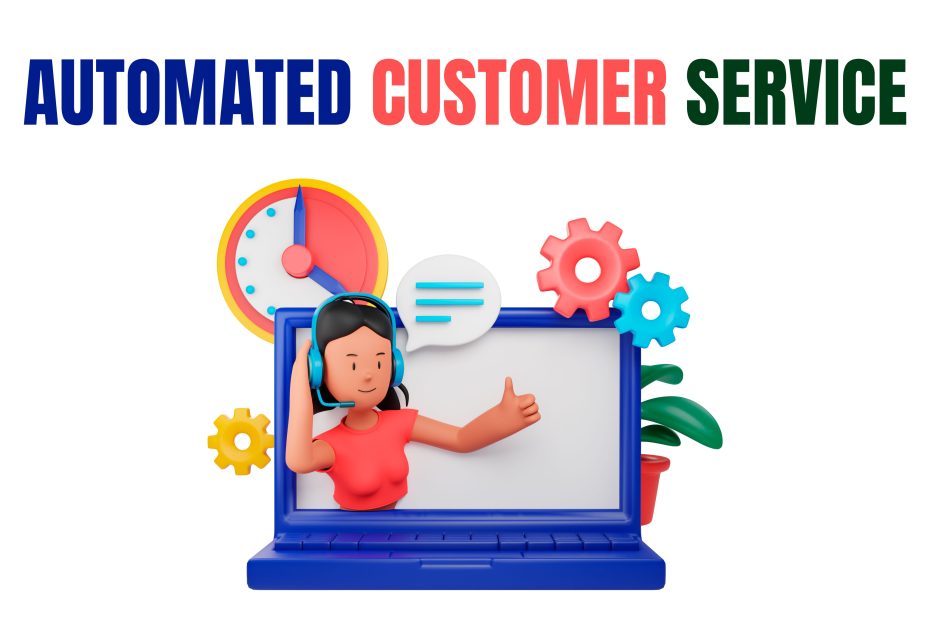Automated customer service, often referred to as Automated Customer Support or ACX, is a technological approach that employs advanced software systems to handle customer inquiries, requests, and issues without direct human intervention. This system streamlines customer interactions, enhances efficiency, and ensures consistent service delivery. It leverages various technologies such as artificial intelligence (AI), machine learning (ML), natural language processing (NLP), chatbots, and interactive voice response (IVR) to automate routine tasks and provide timely assistance to customers.
Key Components of Automated Customer Service
Chatbots:
Chatbots are computer programs designed to simulate human conversations. They utilize NLP and ML algorithms to understand and respond to customer queries in real time. Chatbots can be deployed on websites, messaging platforms, and mobile apps, providing customers with instant responses and assistance 24/7.
Interactive Voice Response (IVR):
IVR systems use voice recognition and touch-tone keypad inputs to interact with customers over the phone. Customers can navigate through a menu of options to access specific information or services. IVR systems can handle tasks like bill payments, appointment scheduling, and basic troubleshooting.
Self-Service Portals:
Automated self-service portals enable customers to find answers to their questions and resolve issues independently. These portals offer a knowledge base, FAQs, troubleshooting guides, and instructional videos. Customers can access information at their convenience, reducing the need for direct customer-agent interactions.
Virtual Assistants:
Virtual assistants, powered by AI, provide personalized assistance to customers. They can analyze customer data, purchase history, and preferences to offer tailored recommendations, solutions, and support. These assistants aim to replicate the experience of interacting with a human agent.
Benefits of Automated Customer Service
24/7 Availability:
Automated customer service systems are operational around the clock, ensuring that customers can access assistance at any time, regardless of business hours. This availability improves customer satisfaction and loyalty.
Efficiency and Scalability:
Automation allows businesses to handle a higher volume of customer inquiries simultaneously, without the need to hire and train additional staff. This scalability is particularly valuable during peak periods or sudden spikes in customer requests.
Consistency:
Automated systems deliver consistent responses and service quality, reducing the risk of human errors and ensuring that all customers receive accurate information and support.
Cost Savings:
By reducing the need for a large number of customer support agents, businesses can achieve significant cost savings over time. Automation optimizes resource allocation and increases operational efficiency.
Data-Driven Insights:
Automated customer service systems collect and analyze data from customer interactions. This data can provide valuable insights into customer behavior, preferences, and pain points, helping businesses refine their strategies and improve the overall customer experience.
Limitations and Considerations
While automated customer service offers numerous benefits, there are certain limitations and considerations to keep in mind:
Complex Issues:
Automated systems may struggle to handle complex or nuanced customer inquiries that require human judgment and empathy. Businesses should ensure a seamless transition from automated interactions to human agents when necessary.
Personalization:
While AI-driven systems attempt to provide personalized experiences, they may lack the emotional intelligence and personal touch that human agents can offer.
Technical Challenges:
Implementing and maintaining automated systems requires technical expertise. Integration with existing systems, ongoing updates, and data security are crucial considerations.
Customer Resistance:
Some customers may prefer human interactions and feel frustrated or dissatisfied with automated responses. Balancing automation with human support options is essential.
Conclusion
Automated customer service is a powerful solution for streamlining customer interactions, enhancing efficiency, and providing consistent support. Through the integration of AI, ML, NLP, chatbots, and IVR, businesses can offer round-the-clock assistance, reduce operational costs, and gain valuable insights from customer data. However, finding the right balance between automation and human touch is crucial to deliver a seamless and satisfying customer experience. As technology continues to evolve, automated customer service will likely play an increasingly central role in modern customer support strategies.





